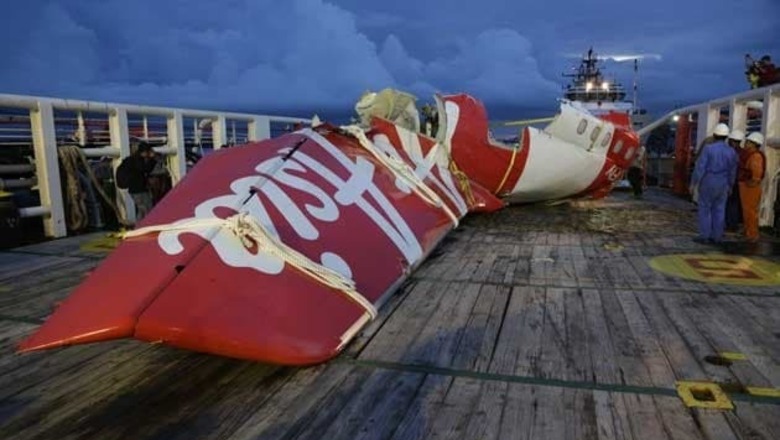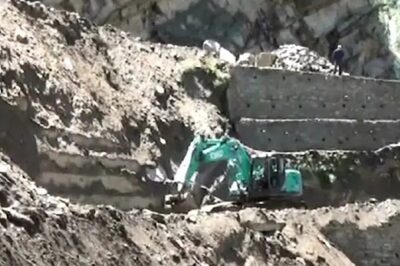
views
Pangkalan Bun (Indonesia): An official says divers have retrieved one of the black boxes from the AirAsia plane that crashed more than two weeks ago into the Java Sea, a major breakthrough in the slow-moving hunt.
Henry Bambang Soelistyo, chief of Indonesia's search and rescue agency, says the flight data recorder was brought to the surface by four divers early Monday morning.
He says the search continues for the cockpit voice recorder. Divers began to zero in on the site a day earlier after picking up intense pings from its beacons, but they were unable to get a visual on it due to strong currents and poor visibility.
The cockpit voice and flight data recorders are vital to understanding what brought Flight 8501 down on December 28, killing all 162 people on board.
Search efforts have been consistently hampered by big waves and powerful currents created by the region's rainy season. Silt and sand, along with river runoff, have created blinding conditions for divers.
Officials believe most of the victims' bodies are likely entombed inside the aircraft on the seabed. So far, 48 corpses have been recovered.
Three more bodies were identified on Sunday, including Park Seongbeom, 37, and his wife, Lee Kyung Hwa, 34, from South Korea, said Budiyono, who heads East Java's Disaster Victim Identification unit and, like many Indonesians, uses only one name.
He said they were discovered on Friday on the seabed, still strapped to their seats. Their baby has not yet been found, but the infant's carrier was still attached to the man.
Sixteen recovered corpses remain unidentified, partially due to decomposition, Budiyono said. Nearly all of the passengers were Indonesian.
The last contact the pilots had with air traffic control, about halfway into their two-hour journey from Indonesia's second-largest city, Surabaya, to Singapore, indicated they were entering stormy weather. They asked to climb from 32,000 feet (9,753 meters) to 38,000 feet (11,582 meters) to avoid threatening clouds, but were denied permission because of heavy air traffic. Four minutes later, the plane dropped off the radar. No distress signal was sent.




















Comments
0 comment